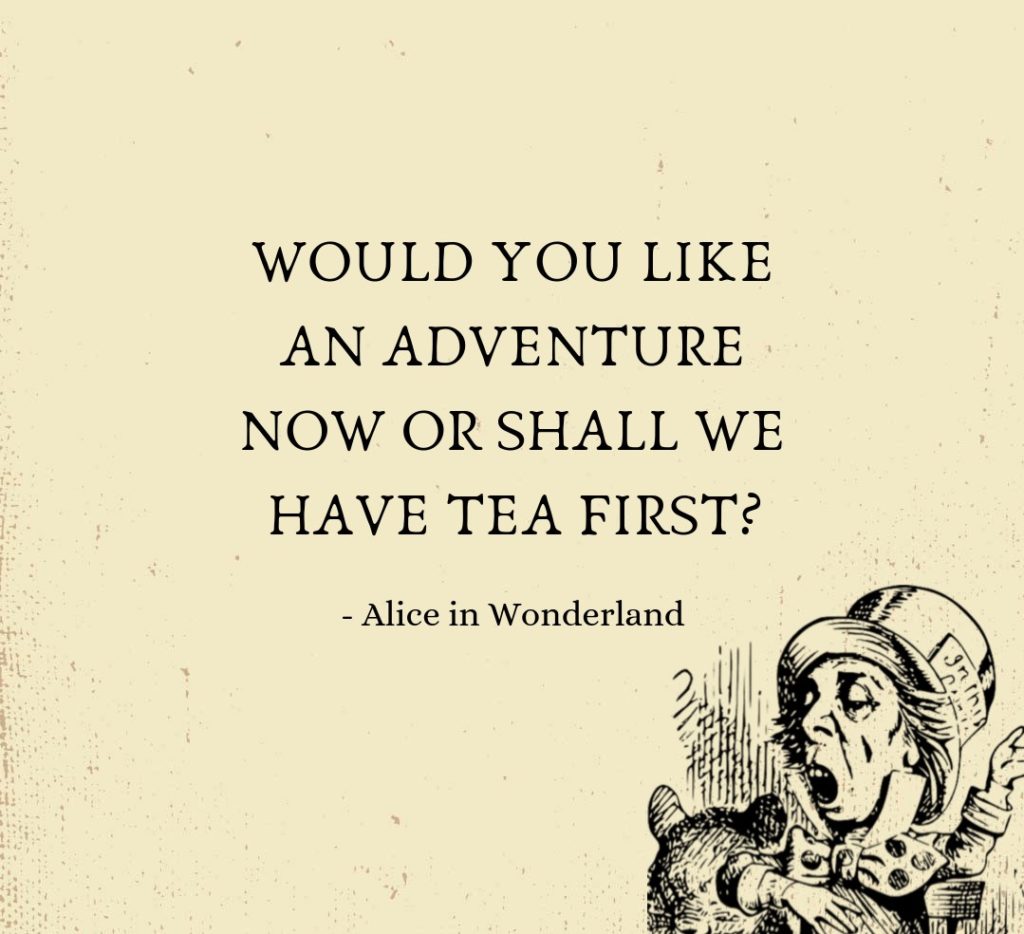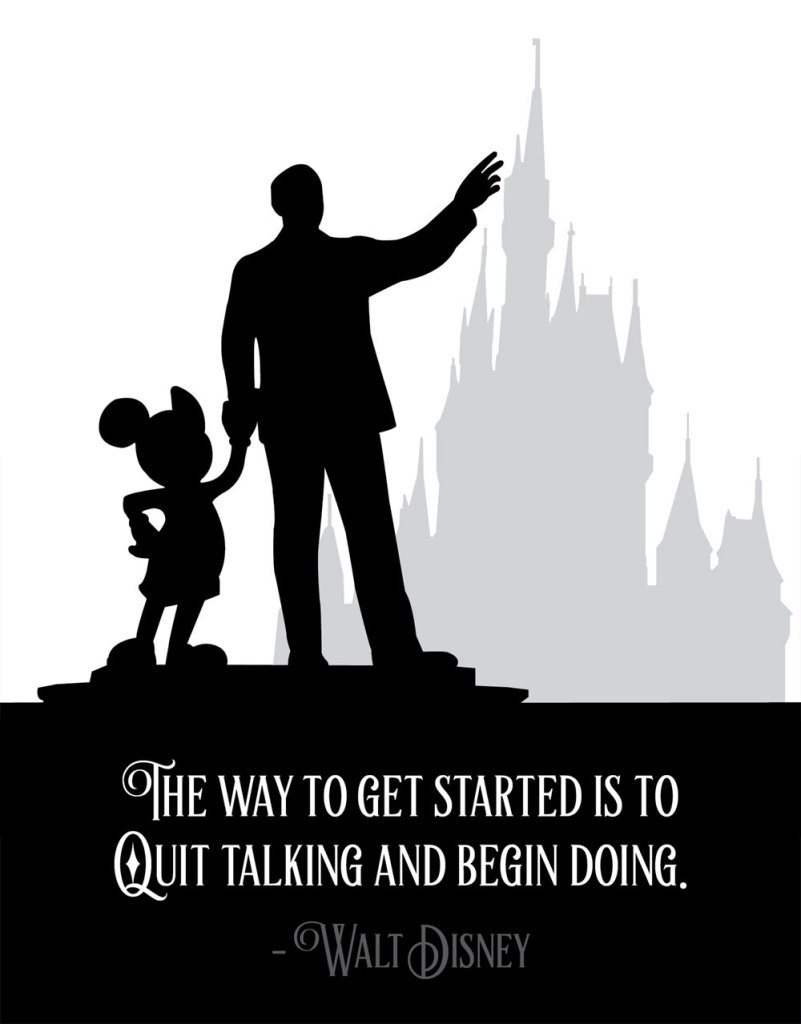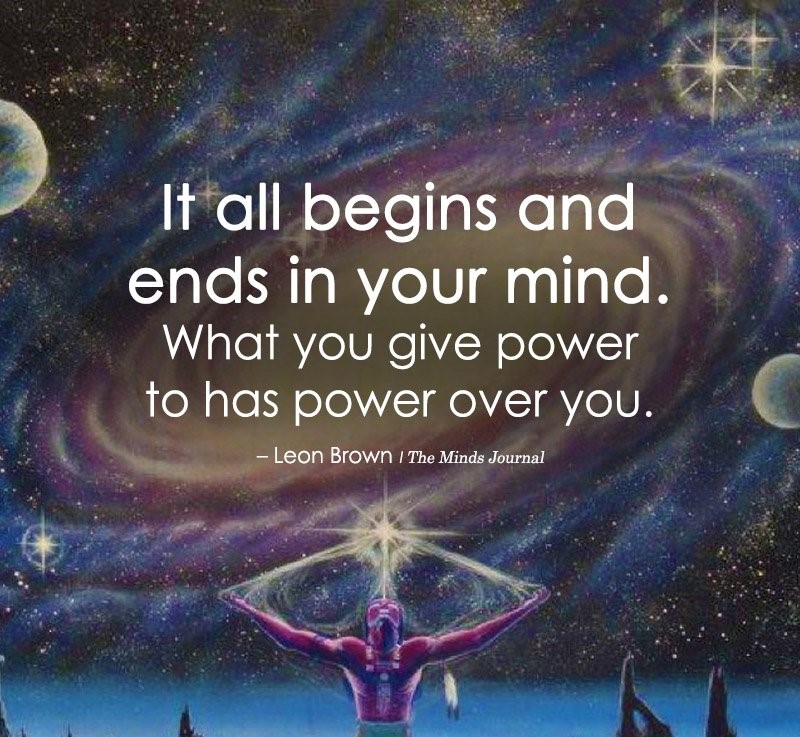
We’re all creatively gifted, but many of us don’t express it because we doubt our abilities. Once the initial enthusiasm wears off, we face resistance in taking the first steps to see our projects through. You can overcome resistance by developing a positive mindset and improving your work habits. Learn how to unlock your gifts with these nine steps. (Estimated reading time: 6 minutes)
“He who rejects change is the architect of decay.”
— Harold Wilson
We are all born creative. As creative beings, we’re driven to share our ideas because it makes us come alive. Our creations are an expression of our souls — unique as a snowflake.
Creativity comes in many shapes and forms. It isn’t limited to the arts. It doesn’t mean that you must possess the talent to paint the next Sistine Chapel or become an “American Idol.” Instead, your creative talent can shine through in other ways.
You could be an excellent baker who makes the most delicious brownies, or a brilliant business strategist who boosts customer retention rates. You could even be a lawyer who comes up with convincing arguments for your clients.
The issue isn’t whether you’re gifted or not, but whether you act on your creative impulses and seek an outlet for them to take form on the material plane.
How many times have you conceived an idea – writing a book, changing careers, or developing a concept for an important event – but you couldn’t bring yourself to do it?
The initial enthusiasm and excitement die out somewhere along the way. Without this primal force, we miss the opportunity to give birth to the idea. It disappears into the ether, never to be seen again.

Like Alice, we hesitate to follow the rabbit (a symbol of hope and curiosity) that would lead us down the rabbit hole (an entry into the unknown and uncharted territory) and into Wonderland – a place where our imagination can flourish.
Getting over our inner blocks is crucial to the creative journey. If we want our ideas to see the light of day, we must jump down the rabbit hole, even if our fear, perfectionist tendencies, and limitations threaten to hold us back.
But what is this mysterious force that stops creation from flowing out of us?
Steven Pressfield, author of “The War of Art,” identifies it as the “resistance.” He describes it as a universal force with the sole mission of keeping things as they are, whether through inspiring fear and anxiety, diverting our attention with distractions, or making our inner critic louder. He writes:
“Resistance cannot be seen, touched, heard, or smelled. But it can be felt. We experience it as an energy field radiating from a work-in-potential. It’s a repelling force. It’s negative. Its aim is to shove us away, distract us, prevent us from doing our work.”
Resistance is the anti-muse; a creative person’s kryptonite. It is never fully gone, and if we are to make room for our inner artist, we must be ruthless and steadfast in our approach to swimming against it’s opposing tides.
What separates maestros from amateurs is the ability to handle resistance. Pressfield says that many talented people fail to realize their aspirations because they don’t put in the work and follow through. That’s why overcoming resistance is more important than talent.

Battling creative resistance is tough. In my professional experience as a writer, I’ve noticed how often self-doubt can creep in and threaten to overwhelm. There is nothing more daunting than staring at a blank page before typing out the first sentence.
Any new creative outlet starts with inner tension as the mind teems with ideas, rich associations, and connections that demand your attention and discipline. At this high point, you must find a balance between controlling the flow of ideas and allowing them to run wild.
As uncomfortable as this phase is, it’s important not to give up. Plough forward, knowing that frustration serves a purpose in the process. What helped me was a change in my perspective.
I began seeing the blank page as a tremendous opportunity instead of being frightened by it. This mental shift brought back the sanctity of the written word. It was no longer about being perfect or about trying to please others. It was a sacred act where I got to be a conduit for wisdom and information, and I could pass it on to those who most needed it.
You may process creativity in a different way and respond better to other solutions and tools to overcome resistance. It might be a complex undertaking, but it can also be as simple as changing your focus. Here are six ways you can overcome resistance:
Mindset
1. Manage negative self-talk: Your inner dialogue comes from a fear of failure, rejection, and not knowing how our ideas will be received by others. If you’re struggling to move forward because you’re overwhelmed by negative self-talk, identify and unpack your limiting beliefs and replace them with supportive and affirming words.
2. Get over the need for perfection and getting it “right”: Striving for perfection can paralyze us. It becomes a hindrance if it causes us to incessantly worry about the quality of our work. Give yourself permission to make mistakes and produce sub-par work, then fine tune later.
3. Reframe the creative process: The enormity and complexity of the creative process, and all that goes into it, appears daunting to many. You can relieve yourself from the performance pressure by reframing the creative process by:
- Focusing on the creative journey, not the end product.
- Taking on a childlike approach like associating creativity with fun and play.
- Seeing creativity as an opportunity for self-expression, rather than a way to get validation.
- Viewing art as a way to connect with your soul and co-create with higher realms.
4. Build a team of cheerleaders: You need a community of supporters who can help you cultivate your ideas, encourage you to express your truth, and support you to keep working. Receiving encouragement and feedback from the right people bolsters creative confidence.

Productivity
1. Have clear, specific goals: Having ambiguous and unclear goals makes it difficult to create a plan and take focused action. Define your goals and have a clear image of your ideal result. Remember to stay flexible and open to making changes along the way.
2. Break it down into simple, doable steps: Breaking down big projects into smaller parts makes them achievable and minimizes our propensity to give up or procrastinate. Put one foot in front of the other, rather than fixating on the marathon ahead of you.
3. Create constraints: According to recent studies, constraints breed creativity because it forces you to become focused and act more resourcefully. Having just a few constraints (without being stifled) can inspire innovation and force us to think outside the box.
4. Take strategic breaks: A critical part of overcoming resistance is knowing when to step away from creative work to recharge. We need breaks to restore our reserves by either scheduling walks, meditation sessions, or other relaxing activities that calm and center us.
5. Just get started: Often, the best way to overcome resistance is to dive right into it, even if you don’t feel like it. After an initial period of discomfort, you’ll find that you can ride the wave of inspiration that you generate just from getting started in the first place.
Like a Jedi from “Star Wars”, you have the power to harness ”The Force” of creativity to manifest your desires. With the right intentions and the diligence to see your actions through, this Force will help you overcome the dark energies of resistance that get in the way of you expressing your natural gifts.
All my best on your journey,
Seline

Question for you: What are some signs that you are facing resistance in your creative process? What are your go-to steps for overcoming it and moving forward with your projects?
Did you like this post? Sign up below, and I’ll send you more awesome posts like this every week.

As some of makes a lot of art inspired by my favorite movies and shows and books, I have had to learn this lesson. For me, i create things for my own enjoyment. its for me first and if someone else likes it, responds, comments, buys, or praises it then that is icing on the cake and simply an added bonus. Yes it can be dissapointing when there’s no love or interaction btu keeping this mindset has helped me avoid a lot of hurt and pain and keeps me focused on being creative.
That is a really good way to look at things, Rin! It takes a lot of pressure off us to focus on our own enjoyment and satisfaction without worrying about pleasing others all the time. That is a mentallity i think more people could have- the world would be a lot better off!